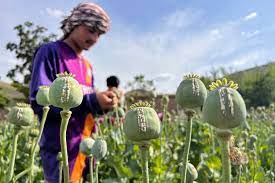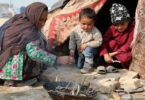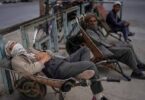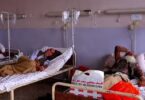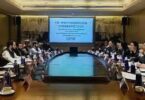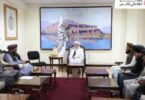HELMAND (Khaama Press): The Ministry of Foreign Affairs of Afghanistan said on Thursday that poppy cultivation reduced almost to zero.
According to the Ministry’s spokesperson, Hafiz Zia, poppy cultivation has been reduced to zero compared to 2020. During 2020, 56.2% of Helmand province’s land was cultivated, which was reduced to 0.4 in 2023.
“In reality, it is much less,” Ahmad tweeted.
This follows an edict that Hibatullah Akhundzada, supreme leader of the Taliban, issued in April of last year outlawing the production of poppies in the country.
On Wednesday, Thomas West, the US’s special envoy for Afghanistan, stated that allegations that the Taliban authorities are stopping the growth of poppies are “credible and significant.”
“Every country in the region and beyond has a shared interest in an Afghanistan free of drugs,” he said.
Earlier this week, BBC reported that In April 2022, Taliban supreme leader Haibatullah Akhundzada decreed that cultivation of the poppy – from which opium, the key ingredient for heroin, can be extracted – was strictly prohibited. According to Sharia law, anyone violating the ban would have their field destroyed and be penalized.
A Taliban spokesman told the BBC that the prohibition was put in place because it violates their religious convictions and is necessary to prevent the spread of opium obtained from poppy seed capsules.
More than 80% of the opium in the world used to be produced in Afghanistan. In Europe, opium from Afghanistan accounts for 95% of the heroin sold.
The BBC has now been to Afghanistan and utilized satellite analysis to investigate the impact of direct intervention on the cultivation of opium poppies.
The Taliban leaders seem to have succeeded more than anyone else in eradicating farming, BBC reported.
We discovered a sharp decline in poppy growth in the main opium-producing areas; according to one expert, annual cultivation may be 80% lower than the previous year.
Poppies have been replaced with less lucrative wheat crops, and many farmers report experiencing financial hardship.
Provinces visited by the BBC included Nangarhar, Kandahar and Helmand. Studies of satellite images were also done.
“It is likely that cultivation will be less than 20% of what it was in 2022. The reduction scale will be unprecedented,” said David Mansfield, a leading expert on Afghanistan’s drugs trade, working with Alcis – a UK firm specializing in satellite analysis.
According to Alcis’ analysis, Helmand’s poppy cultivation has decreased by more than 99%. According to David Mansfield, poppy cultivation in the Helmand province has decreased from 129,000 hectares the year before to fewer than 1,000 hectares.

